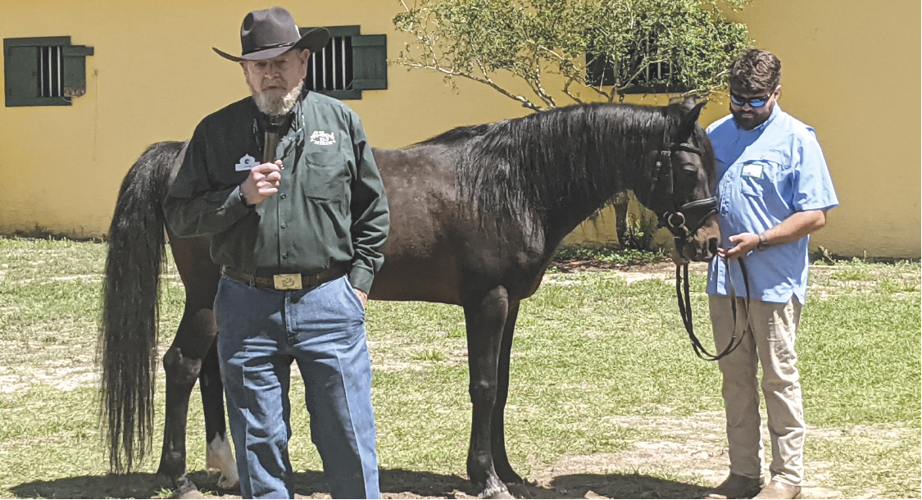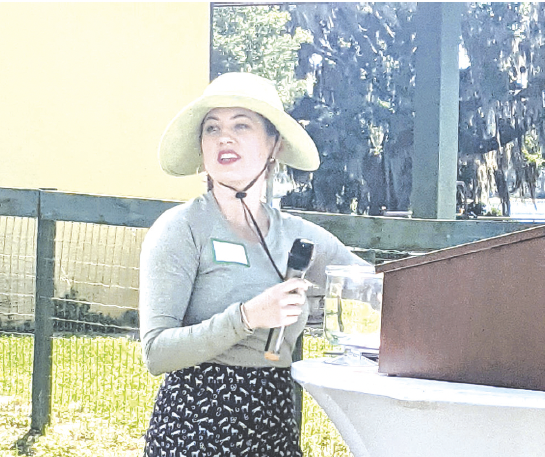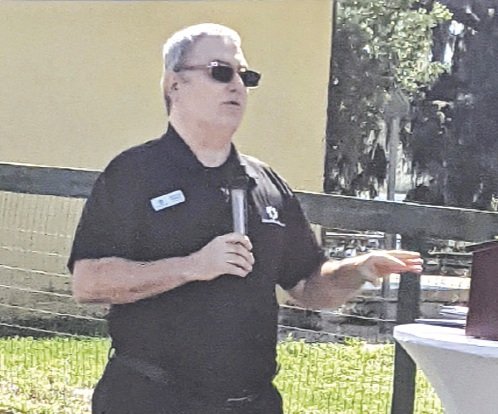‘He was a great kid. A good guy’
By STEVE STEINER ssteiner@clermontnewsleader.com



All Michael Titus wanted to do when he left the mil-itary was to take care of other veterans. Instead, he took his life; multiple deployments to Afghanistan proved too great a burden.
This, according to Alan Alford, who met Titus for the first time just three or four days after the latter had re-turned to civilian life.
That day the two of them hit it off and the next thing either knew, they were on the water in kayaks, getting to know one another. Alford heads up the nonprofit “Fight-ing for our Heroes Foundation, and according to Kriss Titus, was instrumental in helping her get her nonprofit, “Michael’s Foundation” up and running after her son Mi-chael took his life.
“I said to Alan, I don’t know how we’re going to do this,” said Kriss Titus, who has known Alford these past 10 years. He told her not to worry, he would help get this off the ground, and he did. “It was a dream come true.”
Alford, who knows the ins and outs of navigating the government and veterans affairs bureaucracy, having helped hundreds of soldiers once they left the military, leapt at the opportunity as part of his dedication to Mi-chael’s memory.
“We were determined, something positive must come out of this. We were adamant,” Alford said. “You’ve just got to care and you know you have to do it.”
THE CHANCE TO LEARN
Thus it was this past Saturday, March 26, the Michael’s Foundation invited the public to a free event, “A Veteran’s Journey!”
The gathering took place from 10 a.m.-1 p.m. at Mark Miller’s the Al-Marah Arabian Horse Ranch in Clermont. It was the chance for people to learn what it often is like for those leaving the military and having to negotiate civilian life.
The Miller and Titus families have been longtime friends, stretching back at least three decades. They often did things together, including celebrating Thanksgiving.
“With nine kids, people thought we were crazy,” said Mark Miller with a smile on his face. For him, it was an honor and privilege to host the event, as well as the fact he is the chairman of the board of the Michael’s Foundation.
“I was really happy when Kriss decided to start a program for Michael,” he said. He added he has a fair mount of experience with those contemplating suicide, that through his horses he has worked with other organizations for people in that potential mindset.
Horses, he said, have a way of bonding with people separated from that of dogs and cats. That’s because equines are non-carnivorous. Thus horses have therapeutic capabilities that people can relate to when interacting.
The idea of the March 26 event was also to start putting on programs on a regular basis.
“Our goal is to provide these kinds of events once a month,” said Miller.
WE SERVE THEM ALL
“PTSD doesn’t just affect the veteran,” said Neftali Rodriguez. “It affects the family.” Rodriguez is the CEO of the “Camaraderie Foundation” and was one of several keynote speakers and has partnered with Michael’s Foundation.
As for the organization, founded in 2009, its first year of operation assisted nine veterans. This year it has helped 439 thus far. Its success rate helping veterans reintegrate into civilian society is 89%.
Unlike many other organizations, especially govern-ment agencies, anyone with a less than honorable dis-charge is eliminated from being allowed to participate. Not so at the Camaraderie Foundation, and definitely not so with Michael’s Foundation.
“Many of those we help have bad conduct discharges,” he said. “Many of those with bad conduct are often suffering from PTSD,which leads to the bad conduct. It’s a Catch-22.”
(Catch-22 essentially is a situation in which the solution is denied. In the novel of the same name by Joseph Heller, as voiced by the character of Army psychologist Doc Daneeka, “any pilot requesting mental evaluation for insanity demonstrates his own sanity in creating the request and thus cannot be declared insane.”)
However, for those in that category who reach out to the Camaraderie Foundation or Michael’s Foundation, that barrier doesn’t exist.
“We serve them all,” said Rodriguez. “I want to save the life of a veteran. My goal is to save lives, save families.”
A BROTHER’S STORY
Matt Titus was Michael’s brother, and is also a mili-tary veteran. He saw action in Operation Iraqi Freedom in the Airborne Infantry. When he left in July 2004, he received a “slew” of assistance: counseling, prescribed medications, and quick fixes. None of these were effective and led him to erroneous conclusions that he was making progress.
“It was a facade,” said Matt Titus. What he actually was doing was creating what he called “quick accomplish-ments. “It’s so easy to create this facade of accomplishments.”
Had it not been for COVID-19, he might have continued in this further. Because of the pandemic, everything stopped. His business failed and his marriage broke. He attributed these events to an epiphany he had two months ago, which was, he said, because he hadn’t been focusing on himself, only on accomplishments.
“I had to work on me, on myself,” Matt Titus said. The equine program through Michael’s Foundation is a step in that direction, he added.
IT MATTERS
“Grief never goes away,” said Kriss Titus. “It’s a thief in the night. You never know when it’s going to show up.”
Her grief notwithstanding, her determination to not let her son Michael’s death be in vain and instead (as the late Rev. Robert Schuller stated) “turn scars into stars” led to the establishment of the foundation in his name.
By going to the website (https://michaels-foundation.org), Kriss tells the story of Michael. In brief …
“Michael came back to the United States in February 2014 … Things didn’t go so well for Michael, he strug-gled psychologically with the effects of war and battlefield experiences. Troubling issues included Post Traumatic Stress Disorder (PTSD), Traumatic Brain injury (TBI), and depression. He was Baker Acted more than once, and was on a merry-go-round on drugs prescribed by the VA. He was fighting a new battle, a war on his own invisible wounds.
“He shared with his family many times how he dreamed of starting a nonprofit to help veterans and their families to adapt to civilian life post military service; to give to them the opportunity to thrive not just survive. Short of making that dream come true, and unable to fight any longer, Michael took his own life on Feb. 7, 2016.
“A few years passed, and as we healed our hearts, my husband and I felt the desire to take Michael’s dream and make it a reality. Helping veterans and their families to adapt to civilian life post military service; giving them an opportunity to thrive just not survive. In December of 2018 we formed the nonprofit called Michael’s Foundation.
“The mission of Michael’s Foundation is to inspire, en-gage, and empower veterans and their families to adapt to civilian life post military service. On April 16, 2019 we received our 501(c)(3) status and are serving veterans and their families. We are working to create and provide an empowering, supportive community where veterans and their families go beyond just surviving to thriving.”
TO LEARN MORE
Website: www.michaels-foundation.org
Email: kriss@michaels-foundation.org
Phone: 407-970-0936 The Camaraderie Foundation
Website: www.camaraderiefoundation.org
Email: nrodriguez@camaraderiefoundation.org Phone: 407-841-0071 (office)/321-402-4119 (mobile)

